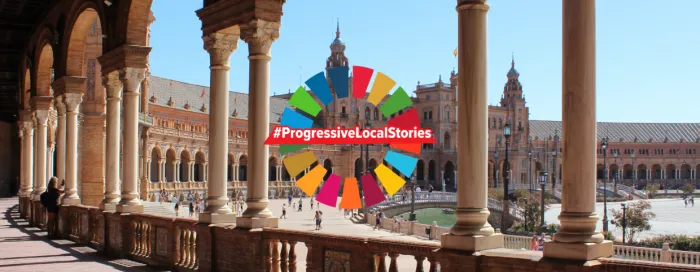Mr. Mayor, why is Seville a progressive city?
Seville has an important history and culture that makes it very attractive to tourists. This means that those who live here can enjoy a shared public space of a high quality.
Major social problems also exist. One priority is thus to improve the education and training levels so that young people have better opportunities. We try to promote an access to wealth for the whole population. For example, we are making efforts in areas where we have identified major social inclusion problems using European funds in order to make development more comprehensive and more available to everyone.
Seville is already a green city, with many green zones, and citizens use more and more sustainable transport solutions (public space and pedestrian areas win over the use of private cars in order to make our city healthier). In the coming years, we will continue working on this and make sure that everybody will have the opportunity to experience a healthier environment.
How can cities contribute to the implementation of the Sustainable Development Goals (SDGs)?
It is within cities that policies' successes or failures are measured. We are now able to see how the sustainable development goals for the planet (that are on our city's present agenda) can either become effective or not depending on the policies we develop in our urban centres where population is mostly concentrated.
From a governance point of view, our goal must therefore be to promote a participatory process that would make our cities models of shared places. We should also primarily promote social inclusion in our policies and make sure that no one is left behind.
We have to make sure that economic recovery policies and job creation are fundamental objectives in order to fill the gap existing in different parts of the city. This gap is mainly due to unfinished education (or in this case to difficulties in gaining access to it) and thus creates inequality and disunity.
The European Pillar of Social Rights should be a first objective in the definition of the models we want for our cities in the coming years. At the same time, it will allows us to strive in order to improve our environment by reducing our greenhouse gas emissions and making our cities definitively more sustainable for a smarter development.
Juan Espadas has been Mayor of Seville since 2015 and a member of the PES Group in the European Committee of the Regions since 2016. He belongs to the Spanish Socialist Party.
